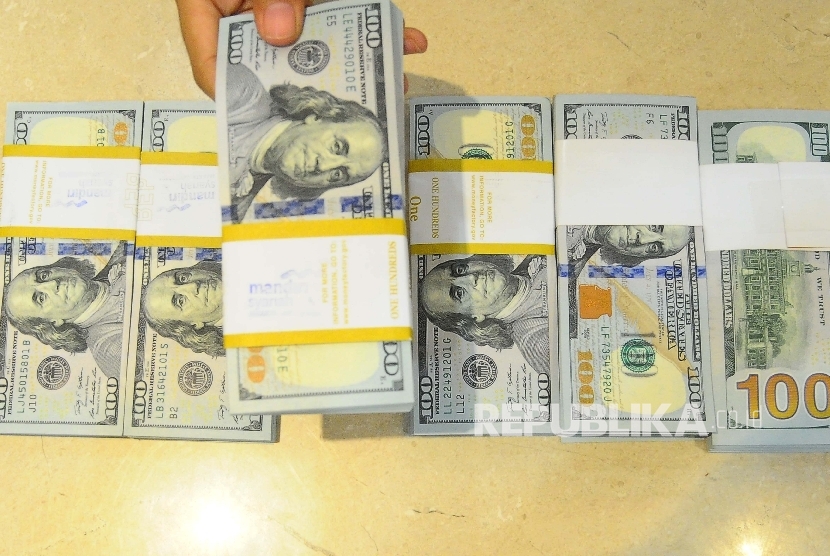REPUBLIKA.CO.ID, JAKARTA -- Bank Indonesia has issued a regulation to only allow licensed entities to bring in or out foreign bills worth up to Rp1 billion.
The licensed institutions may be banks or legal foreign exchange business entities (KUPVA), as regulated in BI Regulation Number 19/7/2017, the central bank's executive director head of foreign exchange management, Budiarto, said here on Monday.
He added that although the regulation was issued on May 5, 2017 it would only become effective on March 5, 2018, to provide a transitional period of ten months.
"Besides, banks and KUPVA rupiah management service companies (PJPUR) which are registered with BI are also allowed to bring in foreign bills worth above Rp1 billion in value, but only upon an order from a licensed institution," he said.
Any institution or individual found carrying foreign bills worth more than Rp1 billion without a BI permit from the Directorate General of Customs and Excise will be prevented or have the money confiscated.
The sanction, however, will be enforced only two months after the regulation is implemented in March, 2018.
Budianto said that one of the aims of the currency limitation was to maintain the stability of the rupiah exchange rate.
The increasing flow of incoming and outgoing foreign bills up to above Rp1 billion has been found to have contributed to pressuring the Rupiah exchange rate, he said, adding that the increasing flow of foreign bills permitted psychological factors in the money market.
"The high activity of foreign bills being brought in and out of Indonesia has increased pressure on the rupiah exchange rate," he said.
Bank Indonesia has had no instrument or adequate data measuring incoming and outgoing foreign bills, while the data could be used as a source of information for formulating BI monetary policies.
"The data will increase the effectiveness of the formulation of a monetary policy," director head of foreign exchange management Rudi B Hutabarat said.
Regarding technicalities for checking the flow of foreign bills, BI will coordinate with the customs and excise service, he said.
BI's decision to limit licensed authorities that are permitted to carry up to Rp1 billion in foreign bills was made because the frequency of foreign bills being carried by banks was nominally at Rp1 billion during a certain period. Rudi said BI has surveyed all banks that have conducted importation and exportation of foreign bills.


